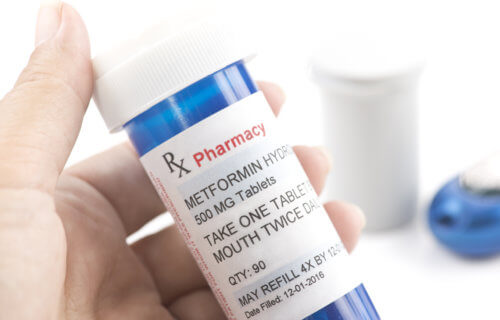DENMARK — New research finds baby boys are at risk for genital defects if they were born to men who took the diabetes medication metformin during conception. The results suggest men with diabetes should advise their doctor on their use of metformin when trying to have a baby.
Diabetes by itself is linked to lower sperm quality and issues with male fertility. Discontinuing metformin could continue to impact birth outcomes, indicating a need for alternative diabetes medication during conception.
Metformin is sold under the brand names Glucophage, Glucophage XR, Riomet, Glumetza, and Fortamet. Previous research has shown that metformin also shows promise as a potential weapon against cancer. It’s also been identified as a potential treatment for a rare genetic disease in children called myofibrillar myopathy.
Researchers analyzed medical information from nationwide birth registries and how babies born to men taking insulin, metformin, or sulfonylureas were associated with birth defects. Babies were considered exposed to a diabetes drug if the father filled at least one prescription during the three months when sperm was developing.
Babies whose fathers took insulin had no risk for a birth defect compared to fathers not taking diabetes medication. However, babies born to fathers taking metformin showed an elevated risk of birth defects. Among all babies, exposure to metformin affected all babies born with genital birth defects being the most common. Additionally, the rate of male offspring was lower than female offspring.
Because there were not enough babies, the researchers could not determine the relationship between birth defects and fathers who took sulfonylureas. Taking metformin before or after sperm development did not increase the risk for birth defects.
The study is published in the journal Annals of Internal Medicine.
